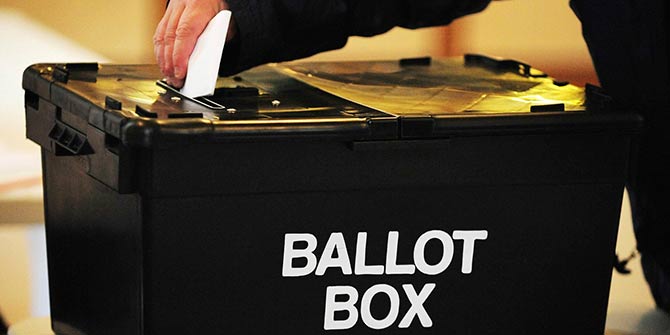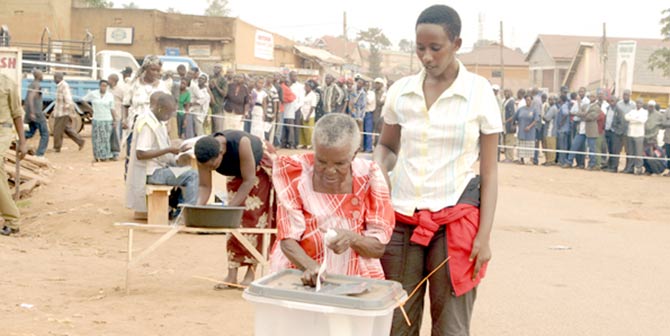The national unity that emerged from Egypt’s 25 January Revolution is being threatened by a series of clashes between Christians and Muslims. Elizabeth Iskander, Dinam Research Fellow in LSE’s Department of International Relations, looks back at the roots of the recent religious unrest.
The sense of hope born in Cairo’s Tahrir Square during the uprising of 25 January was clear for the world to see. One of the most positive scenes to emerge was the display of unity among Egypt’s varied religious communities.

While the majority of Egyptians are Muslim, around 10% are Christian, the majority of whom belong to the Coptic Orthodox Church. In a country where religion has a visible impact on public and political life, protesters resisted attempts to introduce religious slogans into the narratives of their revolution.
The protesters often asserted that they were demonstrating as Egyptians, not as Muslims or Christians or Baha’is and so on, but why was it important that this was vocalised? In the past, Egypt has been vulnerable to episodes of sectarian violence and prejudice, particularly at times of political and social upheaval.
Tensions between Muslims and Christians had been steadily rising in the latter half of 2010 and just weeks before the “Day of Rage” on 25 January, a bomb outside a church in Alexandria killed at least 21 people in the early hours of New Year’s Day.
At the centre of communal tensions since last July is a woman from Upper Egypt called Camilia Shehata. Shehata is the wife of a priest who allegedly left her home and converted to Islam in order to escape an unhappy marriage. Obtaining a divorce in the Coptic Orthodox Church is very difficult, whereas a marriage between a Muslim woman and a Christian man is automatically invalid.
Government authorities located Shehata and delivered her into the care of the church authorities. She later appeared on camera to say that she had not converted. Despite this appearance, the controversy grew. In the security and political gap left by the resignation of former president Hosni Mubarak on 11 February, Salafists have stepped up their threats against the church and their calls for Shehata to be released.
On 7 May, just 2 hours after Shehata appeared on television again with her husband and son to deny her conversion, a church in Imbaba, a poor district of Cairo, was surrounded by Muslim protesters in response to a rumour that a new female convert was being held inside.
The resulting standoff lasted around 10 hours and left 15 dead. The official report of Egypt’s National Council for Human Rights into the Imbaba violence shows that the army and police were present during the attacks but failed to interfere until after two churches were burned down.
According to eye witnesses recorded in the report, Islamist sheikhs were gathered from different areas and taken to Imbaba using police vans. The worrying implications of this led a group of experts on Egypt and religious minority rights to release a statement condemning the incident.
The concerted efforts to maintain unity during the 25 January uprising was demonstrated by the popular slogan “Muslim Christian we are all Egyptian”. It also points to the fact that equal citizenship regardless of religion is crucial for Egypt’s future.
Yet there are deep-rooted narratives present in social and political life, in schools and in the legal culture that distinguish between Egyptian citizens on the basis of religion. As long as the tendency to use religion to create divisions between citizens continues, vulnerability to religious violence will weaken Egypt’s ability to protect its people and diverse heritage or to meet the demands of the revolution.






1 Comments